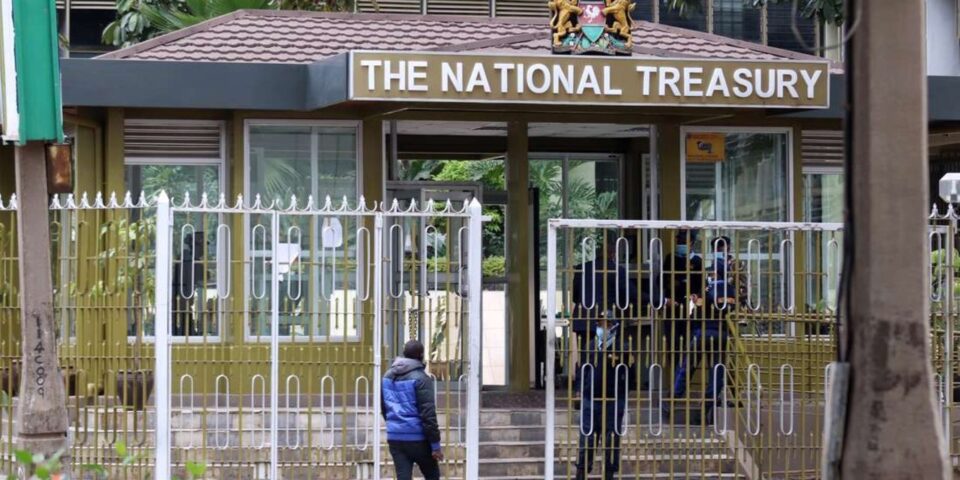Senators and county governments want to clip the National Treasury’s powers in governing the Integrated Financial Management Information System (Ifmis), by having all key users of the system be given equal access.
They want agencies such as the Auditor-General, Controller of Budget (COB), Central Bank of Kenya (CBK) and counties to have the same access that Treasury does, arguing that having the exchequer as the custodian of Ifmis has denied other agencies access to the platform, thus rendering it toothless in preventing financial malpractices.
The recommendation follows several red alerts by the Council of Governors (CoG), Auditor-General, COB and CBK, indicating that there have been deliberate efforts to fail the system as the stealing of public funds has continued unabated for close to two decades.
The central bank, governors, the Auditor-General and COB had been invited by the Senate’s Finance and Budget Committee to deliberate on different issues concerning the efficacy of Ifmis.
The committee is now planning to meet the Treasury, which has been managing the system, and later provide its comprehensive report.
Manipulating the system
Ifmis was designed for use by the national and county governments to ensure transparency in managing public funds, as well as enhancing standard financial reporting in government.

But Auditor-General Nancy Gathungu on Wednesday told senators that many counties have been manipulating the system to feed it wrong information or avoid required protocols, mostly due to loopholes in Ifmis or ill motives by users.
“Ifmis is a good system for promoting integrity and minimising fraud. However, some counties have continued to maintain manual records and ledgers even when they are required to process all transactions and generate financial reports using Ifmis,” Ms Gathungu said.
She noted that counties were avoiding the system altogether when it came to revenue collection, procurement exercises and supplier payments, making it unable to audit or trace usage of public funds.
Ideally, Ifmis is supposed to be a transparent system that allows authorised parties to track how public funds move around, but many government agencies have deliberately failed to use it as required.
“We have also noted instances of revenue being used at source. The opportunity to introduce Below-The-Line transactions at the invoicing stage remains vulnerable because it is possible to process supplier payments by avoiding the procurement process. Backdating of transactions is still possible which may allow users to hide fraudulent entries,” Ms Gathungu added.
She noted that almost all the six key components of the system have major weaknesses that have continued to make it possible for users to dodge public finance management requirements.
These include weak budgetary controls that allow users to override laid-down measures, lots of manual interactions between agencies as many transactions are yet to be automated, and the possibility for users to pay suppliers selectively, which has led to creation of pending bills.
“In counties, Ifmis is used only to report historical information instead of being used at the point of collection of revenue. It relies on information from external revenue collection systems, and is therefore prone to errors, fraud and nondisclosure of revenue,” Ms Gathungu said.
She said counties and government agencies have been failing to implement audit recommendations from her office “with impunity”.
Greatly unutilised

CBK Governor Patrick Njoroge indicated that a decade since the onset of devolution, Ifmis has been greatly unutilised as many activities continue to be undertaken manually.
“Even when counties make payments, they need to have someone physically stationed at the CBK to make approvals. This is despite most other transactions that involve actual physical movement from one office to the other,” Dr Njoroge said.
But senators reckon that the failure of Ifmis is a deliberate attempt by players in Treasury, counties and other government agencies, who don’t want the management of public finances in the country kept transparent.
They said with the many weaknesses being experienced today, Treasury could not be relied upon to rectify, since it had been unable to do so for about 18 years the system has been in use in the country.
“There are a lot of underplays taking place. It can only be a deliberate attempt,” said nominated Senator Rosa Nyamunga.
Senators were concerned that the proactive operation of Ifmis would enable real-time transmission of data and thus prevent theft in government before it takes place by having the Auditor-General flag suspicious deals in time, but its deliberate crippling has made this impossible.
“Access to real-time information and accurate data will help us sitting at managerial points to take proper managerial actions in good time. This is because audit reports always come late when the mess has already occurred,” said Laikipia Governor Ndiritu Muriithi.
There's no story that cannot be told. We cover the stories that others don't want to be told, we bring you all the news you need. If you have tips, exposes or any story you need to be told bluntly and all queries write to us [email protected] also find us on Telegram

